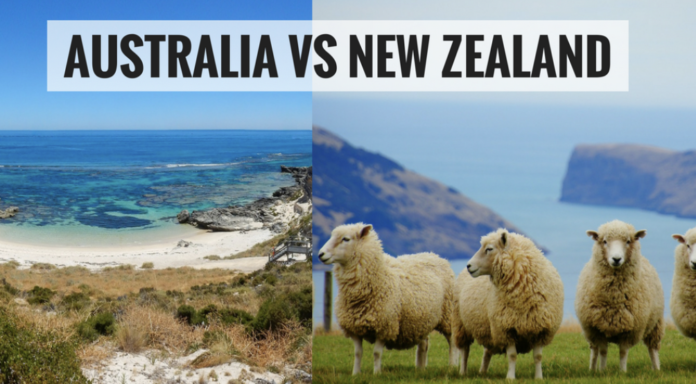Gambling laws are changing in countries all around the world. Many nations are making a shift toward deregulation, whereas some are trying to get a hold on the booming online betting market.
Two neighbouring countries that have different approaches to betting are Australia and New Zealand. Interestingly, their approaches differ when it comes to different types of gambling, such as brick-and-mortar casinos and online ones.
Below, we’ll explore differences like this in more depth. We will consider the current state of play when it comes to legislation in both Australasian countries, both for online betting and offline. We’ll also take a look at what the future may hold.
First, let’s look at what gambling legislation is and the purpose behind it.
The meaning and purpose of gambling legislation
Gambling legislation is essentially the legal framework created by governments to regulate and supervise the industry. Governments may have different aims or motivations for regulating the industry. For example, it could be to protect players, or it could be to take advantage of a potential source of tax revenue.
Many governments around the world, particularly in the West, have sought a happy balance between upholding a person’s freedom and shielding them from the potentially damaging effects gambling can cause.
Some people believe regulation is the most pragmatic solution. Not only does it benefit the nation overall in terms of tax revenue, but it can work out better for the player unless regulation leans more towards prohibiting gambling. For example, imposing laws can prohibit any form of cheating or rigging that might disadvantage the player.
To achieve this, betting companies must use some form of certified random number generator and follow stringent guidelines regarding advertising and promotions. In effect, these regulations seek to guarantee the integrity of the game and protect players from being exploited.
Let’s take a look at some examples of gambling legislation in practice.
Gambling laws in Australia
Gambling laws in Australia can be tricky to wrap your head around. In short, there’s no single piece of legislation that governs the gambling industry. Likewise, there’s no central body in place to enforce those laws.
Instead, Australia mainly delegates this responsibility to the eight mainland states and territories that make up the country. There are, however, some influential federal laws in place which apply across borders.
Some examples of these federal laws include:
- No online casinos, slot machine games or poker
- No ‘in-play’ betting online for sporting events
- No online instant lotteries
The rules can be a little confusing, however, as they apply to operators and not individuals. It’s therefore still perfectly legal for an individual Australian player to gamble online with a betting company based offshore.
There are other exceptions to the laws outlined above too, which we’ll consider below in the context of online casinos and sportsbooks.
Online casinos
One piece of federal legislation that plays a significant role in the Australian gambling industry is the Interactive Gambling Act 2001. This is the piece of legislation which outlaws Australian gambling providers from offering online casinos.
The Act also states that these companies cannot advertise certain forms of online gambling to Australian residents, nor can they promote bonuses or offers that include an offer of credit for online betting.
Sportsbooks
Sports betting is also subject to legislative control in Australia, although the rules are laxer in comparison to online casinos.
For example, online sports betting is perfectly legal — and is one of the most popular forms of betting in Australia — but bets must be placed through licensed Australian operators.
They’re also subject to strict advertising restrictions, particularly around points such as false claims or misleading offers.
The key thing to remember with any form of online gambling in Australia is to check the rules specific to the territory that you’re staying in.
Gambling legislation in New Zealand
In contrast to Australia, the gambling legislation in New Zealand is more centralised. There is one key piece of legislation called The Gambling Act 2003. It governs casinos, lotteries and sports betting and is viewed as a strict legal instrument that imposes operating hours, restrictions on the types of games offered and the conduct of staff.
These laws apply both offline and online. For example, there are only six brick-and-mortar casinos in the entire country: Auckland, Hamilton, Queenstown, Wellington, Christchurch and Dunedin.
Let’s take a look at how the legislation applies to online betting.
Online casinos
The laws governing online casinos in New Zealand are stringent. For example, it’s illegal for anyone to operate an online casino in New Zealand.
At present, New Zealand residents are free to bet with online casinos that are based offshore — just like in Australia. However, the government has made moves to tighten this up. In the future, offshore gambling firms will need to obtain a license from the New Zealand government.
Sportsbooks
The legal position for online sportsbooks in New Zealand is also governed by The Gambling Act 2003. The Act permits New Zealanders to bets on a wide range of sports, including soccer, basketball, horse racing, cricket and rugby.
In order to offer these services, online betting companies must obtain a license from the New Zealand government. They must also comply with a variety of strict laws surrounding advertising and promotions.
Comparing gambling laws in other countries
Although the gambling laws in Australia and New Zealand sound pretty strict, they’re relatively lax compared to a few nations around the world. Let’s look at some of the strictest:
- Singapore – Singapore has some of the most restrictive gambling laws in the world. Only two casinos are allowed to operate in the entire country. Residents are also subject to strict regulations around the use of online gambling sites.
- North Korea – Gambling is completely illegal in North Korea. Those caught gambling can face harsh penalties, including imprisonment and hard labour.
- United Arab Emirates (UAE) – Gambling is illegal in the UAE both online and offline, and the government takes a strong stance against it in any form. Those caught can face significant fines and even imprisonment.
- Saudi Arabia – Just like the UAE, Saudi Arabia prohibits all forms of gambling and enforces strict penalties for those caught in the act.
- Brunei – Again, those found gambling in Brunei could go to prison or face hefty fines.
Now that we’ve seen some of the harsher regulatory regimes, let’s take a look at some of the more lax frameworks:
- Malta – This is a well-known destination for online gambling operators due to its tax-friendly policies and lenient requirements. The Maltese government has established a regulatory framework for online gambling, making it a safe and secure destination.
- Curacao – This small Caribbean island is famous for its relaxed online gambling regulations. The Curacao Gaming Control Board licenses numerous online casinos, offering players a wide range of gaming options. Despite its lenient regulations, Curacao requires licensed casinos to meet strict security and fairness standards.
- Gibraltar – The British Overseas Territory is home to many online gambling companies due to its favourable tax regime and legal framework. The Gibraltar Betting and Gaming Association regulates online gambling in the territory. It has established strict standards for player protection, security and fairness.
What does the future hold?
While online gambling revenues continue to climb steeply, governments can be left in a bind. Taxation revenues can come in handy for easing budgetary concerns, and that can sometimes be a reason to relax laws even further.
However, with relaxed laws comes an increased chance of people suffering harm. Unchecked gambling can lead to some people suffering from addictions which can detrimentally affect their lives.
There are always calls for governments to tighten things up. In 2022, the Australian government passed new legislation that imposed mandatory taglines on online gambling adverts. Imposing further regulation in a federal state like Australia is tricky though. It requires consensus across the board and that is something that can be tough to achieve.
More luck with changing the law may be had in New Zealand which takes a more centralised approach. In recent years, the government has introduced the Harm Reduction Bill which, like in Australia, requires operators to include information about the risks associated with betting.
The legislative agenda can always change, however. Whenever there are elections and new governments coming into power, the possibility exists that they’ll change gambling laws. This is something that is vital to stay up to date with.
To achieve that you can try signing up for newsletters and blogs written by commentators on gambling laws. Given the huge public interest in the industry, many changes in the laws are being reported in mainstream newspapers.
What is apparent, however, is that both New Zealand and Australia generally seem to be moving in the same direction. Their focus is on public health and ensuring their citizens have adequate protections in place. They also both impose strict regulatory frameworks. Neither seem likely to change this stance anytime soon.




